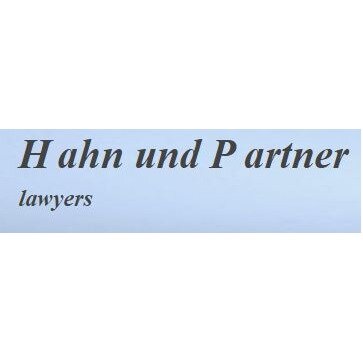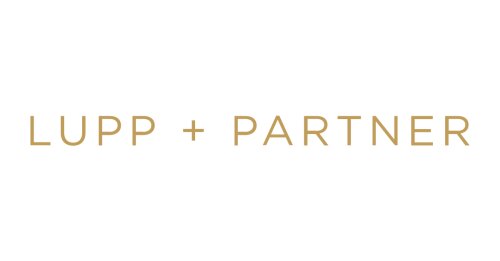Best Due Diligence Lawyers in Germany
Share your needs with us, get contacted by law firms.
Free. Takes 2 min.
Or refine your search by selecting a city:
List of the best lawyers in Germany
About Due Diligence Law in Germany
Due Diligence in Germany is a critical aspect of business transactions, particularly in mergers and acquisitions. It involves a comprehensive appraisal of a business by assessing its commercial potential, financial performance, legal standing, and operational capacity. The aim is to verify the facts and figures to ensure informed decision-making. German due diligence practices often reflect a high standard due to the stringent legal frameworks and regulations governing business operations.
Why You May Need a Lawyer
There are several common situations where legal advice in due diligence is necessary. For instance, during mergers and acquisitions, a lawyer can help in evaluating the financial health and compliance standing of a potential acquisition target. In the context of corporate transactions, legal assistance is crucial in identifying any potential legal liabilities or regulatory non-compliance. Similarly, due diligence is essential when setting up joint ventures or partnerships, as it ensures that all potential risks are identified and mitigated. Engaging a lawyer can provide assurances that the due diligence process is thorough and complies with local laws and regulations.
Local Laws Overview
Germany has a robust legal framework that governs due diligence processes, particularly in corporate transactions. German commercial law requires comprehensive documentation and transparency to protect investors' interests. The key aspects include obligations under the Corporate Governance Code, the necessity of financial audits, adherence to anti-money laundering regulations, and ensuring all business operations comply with the Data Protection Act. Additionally, the German Stock Corporation Act outlines specific requirements for publicly listed companies, making it crucial for businesses to thoroughly conduct due diligence to prevent legal pitfalls.
Frequently Asked Questions
What is the primary focus of due diligence in Germany?
The primary focus is to assess legal, financial, and operational aspects of a business to uncover any potential risks or liabilities.
Why is due diligence important in mergers and acquisitions?
Due diligence is crucial as it helps in identifying potential risks, assessing the fair value of a business, and avoiding future disputes or losses.
What documents are typically reviewed during due diligence?
Documents reviewed include financial statements, tax records, legal contracts, employment records, and compliance certifications.
Are there specific due diligence requirements for startups in Germany?
While startups may have fewer formal requirements, investors usually conduct extensive checks on business models, intellectual property, and market potential.
How does due diligence impact cross-border transactions?
In cross-border transactions, due diligence must consider international laws and regulations, currency risks, and potential cultural differences.
Is due diligence a legal requirement in Germany?
While not always legally required, due diligence serves as a critical risk management tool and is typically expected in major business transactions.
What risks are associated with inadequate due diligence?
Inadequate due diligence can lead to financial losses, legal disputes, regulatory penalties, and reputational damage.
What role does a lawyer play in due diligence?
A lawyer helps interpret legal documents, assesses compliance and regulatory risks, negotiates terms, and ensures all legal obligations are met.
How long does the due diligence process take?
The duration varies depending on the complexity of the transaction but generally takes several weeks to ensure thorough analysis.
Can due diligence uncover all potential risks?
While it significantly reduces risks, due diligence may not reveal all potential issues, making ongoing risk management essential.
Additional Resources
For additional resources on due diligence in Germany, consider consulting the Federal Ministry of Justice and Consumer Protection, the German Chamber of Commerce, and legal associations such as the German Bar Association. These organizations offer valuable guidance and support for understanding and implementing due diligence processes.
Next Steps
If you require legal assistance in due diligence, it's advisable to seek a lawyer or law firm specializing in corporate law. Begin by gathering all relevant documents and identifying key areas of concern. Schedule consultations with legal experts to discuss your needs, receive professional assessments, and develop a comprehensive due diligence plan. By taking these steps, you can ensure informed decision-making and robust legal compliance in your business endeavors.
Lawzana helps you find the best lawyers and law firms in Germany through a curated and pre-screened list of qualified legal professionals. Our platform offers rankings and detailed profiles of attorneys and law firms, allowing you to compare based on practice areas, including Due Diligence, experience, and client feedback.
Each profile includes a description of the firm's areas of practice, client reviews, team members and partners, year of establishment, spoken languages, office locations, contact information, social media presence, and any published articles or resources. Most firms on our platform speak English and are experienced in both local and international legal matters.
Get a quote from top-rated law firms in Germany — quickly, securely, and without unnecessary hassle.
Disclaimer:
The information provided on this page is for general informational purposes only and does not constitute legal advice. While we strive to ensure the accuracy and relevance of the content, legal information may change over time, and interpretations of the law can vary. You should always consult with a qualified legal professional for advice specific to your situation.
We disclaim all liability for actions taken or not taken based on the content of this page. If you believe any information is incorrect or outdated, please contact us, and we will review and update it where appropriate.
Browse due diligence law firms by city in Germany
Refine your search by selecting a city.














